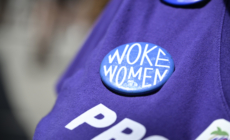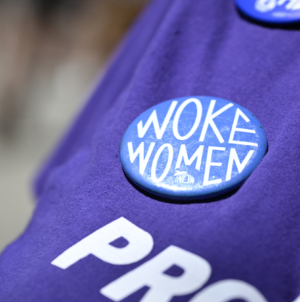-
Jan. 6 defendants from California eagerly await Trump pardons - 4 mins ago
-
Americans are Shunning ‘Woke’ Words, Poll Suggests - 6 mins ago
-
Don’t Do Trump’s Work for Him on Mass Deportations - 20 mins ago
-
Mia Khalifa’s Response to Dating Rumor Goes Viral - 41 mins ago
-
These tenants want to own their buildings. L.A. is collecting millions to help - 46 mins ago
-
International Criminal Court Issues Arrest Warrants for Netanyahu and Gallant - about 1 hour ago
-
Snorkeler Channels Steve Irwin in Dream Encounter With Ocean Creatures - about 1 hour ago
-
Do California teachers have the right to slam Trump? Yes. And no - about 1 hour ago
-
Trump’s Tariffs - 2 hours ago
-
Musk and Ramaswamy Unveil Plan to Overhaul Government - 2 hours ago
Gavin Newsom Signs Law Banning College Legacy Admissions
California Governor Gavin Newsom signed a bill on Monday banning private, nonprofit colleges from legacy admissions processes.
The law, which takes effect in September 2025, is designed to promote fairness in access to higher education, regardless of their socioeconomic status as private colleges in the state will be banned from giving preference in the admissions process to applicants related to alumni or donors of the school.
In a statement after signing the bill on Monday, Newsom, a Democrat, emphasized that the new legislation aligns with the state’s broader commitment to equity.
“In California, everyone should be able to get ahead through merit, skill and hard work,” Newsom said in a statement. “The California Dream shouldn’t be accessible to just a lucky few, which is why we’re opening the door to higher education wide enough for everyone, fairly.”
While the public University of California system eliminated legacy admissions back in 1998, this law applies to private, nonprofit institutions across the state that consider family connections in admissions, including the University of Southern California, Stanford University, Claremont McKenna College and Santa Clara University.

Justin Sullivan/Getty Images
Phil Ting, the Democratic assemblymember who authored the bill, stressed the importance of leveling the playing field for all students.
“Hard work, good grades and a well-rounded background should earn you a spot in the incoming class–not the size of the check your family can write or who you’re related to,” Ting said in a statement Monday.
Newsweek reached out to Ting’s office via email on Tuesday for comment.
The ban comes in the wake of heightened scrutiny over legacy admissions as critics of such admissions argue that the practice disproportionately benefits wealthy, predominantly white students, thus perpetuating inequality in higher education.
The legislation is part of a growing national conversation about fairness in the college admissions process and follows the U.S. Supreme Court’s controversial affirmative action ruling in 2023, which struck down race-based admissions policies in a case centered on Harvard and the University of North Carolina at Chapel Hill.
According to the data released by Harvard University last month, the school reported a decline in the number of Black students admitted to its freshman class, the first to enroll after the ruling to end affirmative action in higher education.
The data, which highlighted the continuing ripple effects of the ruling, revealed 14 percent of incoming students at the university identify as Black, marking a 4 percent decrease from the previous class. In contrast, Latino students now represent 16 percent of the freshman class, a 2 percent rise, while Asian-American student representation remains steady at 37 percent.
The Supreme Court ruling has forced universities nationwide to reconsider their approaches to ensuring campus diversity as institutions also grapple with how to ensure more equitable access to higher education.
This article includes reporting from The Associated Press.
Source link


















